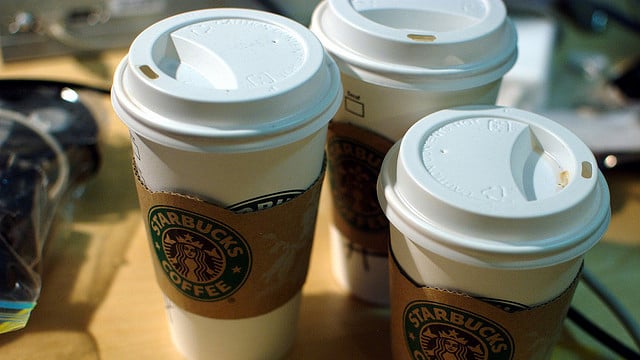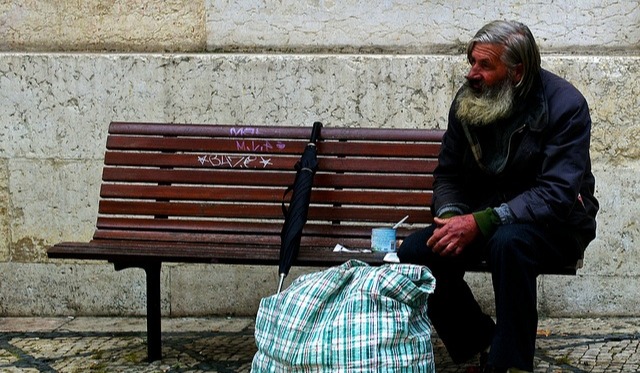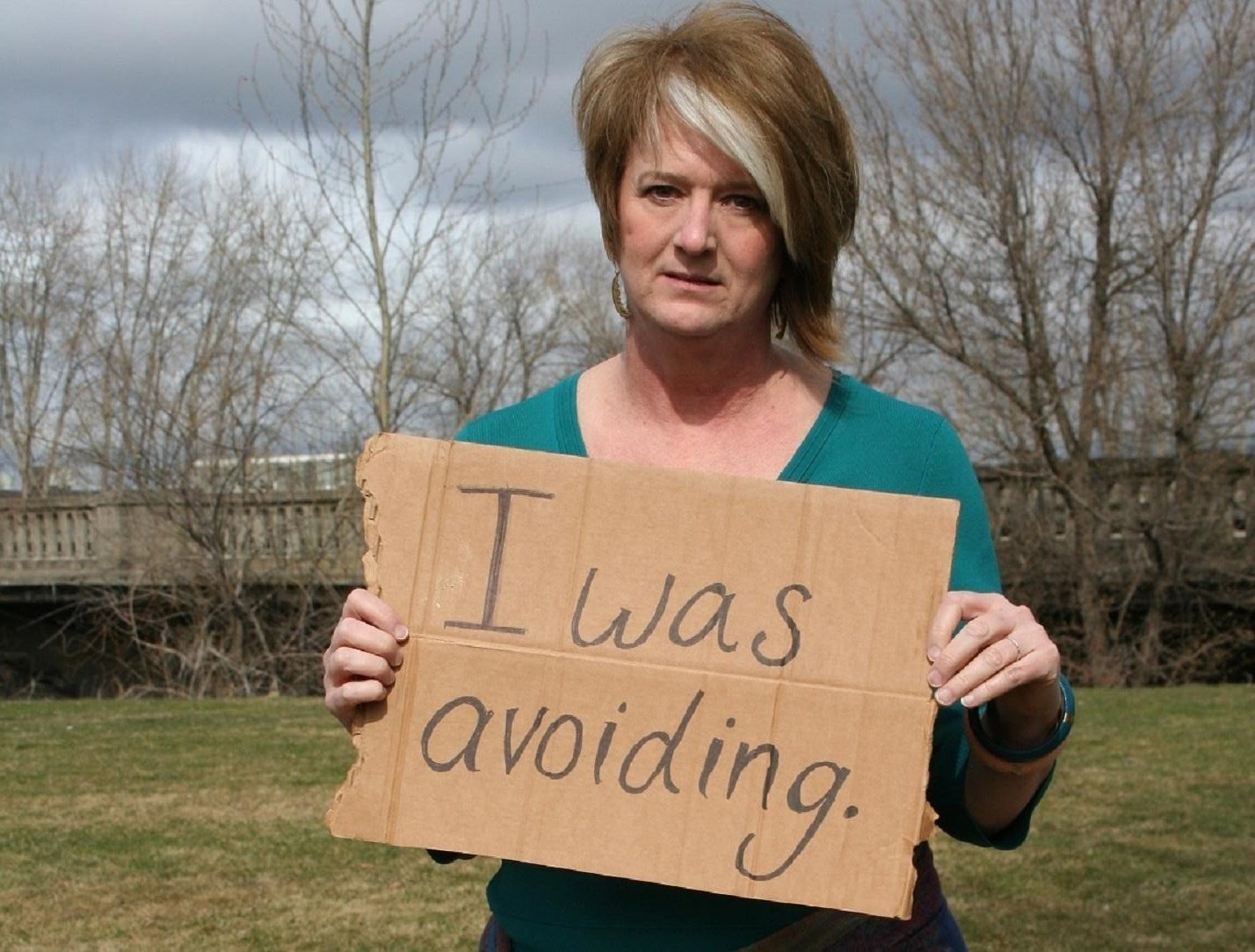2 min read
Gospel-Centered from the Start
“Let us hold unswervingly to the hope we profess, for He Who promised is faithful…Jesus Christ is the same yesterday, today, and forever.” (Hebrews...
5 min read
 Barbara Comito, former marketing director
:
June 3, 2014
Barbara Comito, former marketing director
:
June 3, 2014
This is the second of a 2-part interview with Mental health Counselor Dave Edwards on how addiction affects all our lives. The first part, How do you know when you're addicted? introduced the connection between alcohol/drug abuse and other behaviors. This post explores next steps for a person who recognizes the beginnings of addiction in his or her life.
I don’t want to feel stuck and powerless and frustrated. I want to feel excited. I want to feel like there’s energy in my life.
> Tweet this.
UGM: We talked a little bit last time about the difference between substance addictions and process (or behavioral) addictions. Can you elaborate on that a little more?
Dave: I think what we really want to focus on are the similarities, rather than the differences.
There is this chemical process that happens when I eat or shop or gamble that makes me feel excited, makes me feel alive, makes me feel “not dead.” The behavior is sending those endorphins that actually make me feel more alive, and I want to feel that way. I don’t want to feel stuck and powerless and frustrated. I want to feel excited. I want to feel like there’s energy in my life. And so these things…they’re a lot like comfort foods. There’s an actual chemical process taking place that makes me feel more relaxed, more content, more satisfied.

UGM: And that’s a problem because …..?
Dave: It’s not a problem if I occasionally have a doughnut, right? I just like the sweet taste, but if I find myself compulsively having to have sweets, binging on donuts, then that should be a red flag that I’m starting to use this as a form of escape in my life.
UGM: Instead of dealing with things that really have to be dealt with.
Dave: Right. With frustrations in my life, or conflicts that are unresolved, or decisions that I need to make but don’t want to.
UGM: And you can’t mature if you’re always avoiding the unpleasant.
Dave: Yes. And that’s another part of the addictive process. All addictions are what we call progressive. So in the beginning – let’s use exercise as an example again – the addiction doesn’t look like a bad thing. You’re losing weight, getting in shape, and people may be affirming you for that. But you gradually begin to realize this is a compulsive thing. Maybe your wife or your kids start to complain, "Dad, you’re always exercising. We don’t see you anymore. We don’t have any time with you.” And that’s how you know the behavior, the habit, is progressing toward addiction – when your “drug of choice” becomes more important to you than your relationships. You’ve progressed to a place where you’ll sacrifice the relationships that you really believe are important in order to engage in the behavior. The thought process, conscious or not, goes something like this: This is my thing, my outlet. This is where I feel alive. This is where I feel good about myself. When I come home, I don’t feel like a good dad, I don’t feel like a good husband. I want to feel good.
I want to feel good.
UGM: So it’s really possible that as you work toward giving up your addiction, you’re not going to feel better; you’re going to feel worse. That’s really possible.
Dave: Oh absolutely. And that’s where the drug that started as a coping mechanism becomes the problem in and of itself. I’m losing my marriage, I’m losing my job, because I’m more committed to my drug of choice than I am to my family or to my job. That’s where life breaks down and people hit their bottom, so to speak. The drug is no longer working. I used it to escape this thing, and now it’s created a whole new set of problems in addition to the problems I started out trying to escape from.

UGM: How is the subject of addiction relevant to the average church-goer?
Dave: I think it is important to look at addiction on a continuum – the beginning stages of addiction to mid-range addiction to extensive. There’s this range, but the important thing is for people to be willing to honestly look underneath the hood, so to speak, and say “Is there any compulsivity here? Is this beginning to take me away from the things that are important to me? Is there something I’m trying to escape?” And if you say yes, then you can begin to admit that perhaps you’re in the beginning stages of forming an addiction.
Ask yourself, Is there any compulsivity there? Is there something I'm trying to escape?
UGM: And when you admit that to yourself, what then?
Dave: Well, for starters, there are incredible resources on the internet. You could pull up "spending addiction" on Google or "food addiction," and you will find online self-tests. You can ask yourself a few questions and see where you fall on the continuum.
One of the first indicators for most people who have any close relationships is that the people around you start to notice a problem. You may start to get comments from people close to you like, “You’re always playing golf these days…” or “You’re always….” These are indicators you need to pay attention to.
Let’s take the scenario that I think I have a problem with shopping. And I go online and I take this little shopping self-inventory and I hit like 20 out of 25 on the list. I might want to begin to get some books and educate myself about this particular problem. I might want to take the risk and go to a 12-step meeting. And the first step of the 12 is to admit that I have a problem. At this meeting, I might hear other people sharing their journey and discover that I can really relate with what they’re saying. And I go, “Wow, I’m not alone. There are other people struggling with this and they’re getting help, and maybe I can get help here, too.” Going to your pastor, going to a good friend, going to a counselor can all be good steps. Look for someone safe with whom you can begin to open up a little and look at what’s going on.
UGM: Looking for someone with whom you can practice confession and begin to ask yourself, “Is there something I’m trying to avoid?”
Dave: Yeah, just a willingness to explore the questions versus getting in your boat and rowing up the River Denial, as we say. “I don’t have a problem.” Which is pretty common with people. Everybody hears that from drug addicts, “I can handle my liquor. It’s not a problem for me. I only do it to have fun.” The temptation is to rationalize away our behavior.
UGM: That seems like it would be even easier to do with the process addictions.
Dave: I think you’re right about that, especially with food and sex addictions. Having sex with your wife or being sexual is a normal part of married life, so how could that be a problem? Enjoying good food as part of God’s bounty is a good thing, right? These are areas where you have to take a step back and ask yourself, “How am I using this behavior? What am I using it for?”
Most individuals on the planet have their share of unhealthy coping mechanisms bordering on addiction. > Tweet this.

UGM: Almost a brutal honesty.
Dave: Yeah. And frankly, I would say that most individuals on the planet have their share of unhealthy coping mechanisms bordering on addiction. We all have stress in our life; we all have families; we all have conflicts. How we cope with those is the real issue. The problem is not the food; it’s not the shopping; it’s what I’m using it for. Again, an addiction can be anything you use to avoid unwanted thoughts, feelings and memories.
We’re talking about substance addiction and process addiction, but in reality, both are substance addictions because of what’s happening in the brain. The addict gets a chemical high from shopping. They're not ingesting a drug to get that chemical high, but they're getting it from the excitement of shopping, the excitement of that new outfit. And there’s a rush that happens. People talk about the runner’s high. What’s really happening is that the body is producing drugs to numb the pain for the person who is pushing their body that hard, and they go into this runner’s high where they don’t feel pain anymore. They’re not ingesting anything, but it’s the same chemical process.
Dave Edwards graduated from California Graduate School of Psychology in June 1997 with a Master of Science degree in Clinical Psychology. He is a licensed Marriage and Family Therapist in the state of Washington and has worked as a mental health counselor for the past 14 years. Dave has experience and expertise in working with marriage and family issues, as well as dual diagnosis adults in both private practice and agency settings. Prior to entering the professional mental health arena, Dave worked in pastoral counseling for 15 years.
God loves the poor and broken. Read more about his compassion; click below and download our free e-book.

2 min read
“Let us hold unswervingly to the hope we profess, for He Who promised is faithful…Jesus Christ is the same yesterday, today, and forever.” (Hebrews...

9 min read
To celebrate 75 years of serving the Inland Northwest, we are spending the year remembering our history and the faithfulness that built us and...

2 min read
In 2026, Union Gospel Mission Inland Northwest is approaching our 75th Anniversary! This is a milestone that invites gratitude and reflection, and...

Just say no. Not even once. DARE to keep kids off drugs and alcohol. The problem with these anti-drug slogans is twofold: 1) their simplicity belies...

1 min read
This is the second of two posts on UGM’s self-evaluation process. The first, “The courage to ask why I do what I do” explains how the process plays...

1 min read
Addiction is so much bigger than drugs & alcohol. In this interview, Dave Edwards, a Spokane mental health professional and former UGM counselor,...